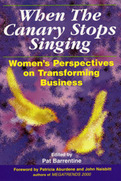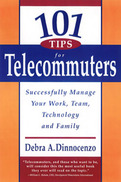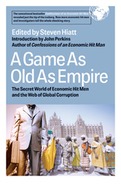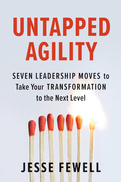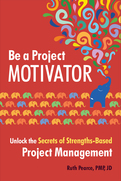Just as canaries once warned miners of unhealthy conditions underground, women in today's corporate marketplace are sounding a caution that our business survival depends on making far-reaching changes in the business environment.
This collection of provocative, timely, and encouraging essays proposes ways to transform the traditional workplace into a more wholesome and balanced environment that honors masculine and feminine traits as equally vital. The fifteen women-entrepreneurs, consultants, and corporate executives-who offer these provocative and practical essays serve as harbingers of essential business transformation. As varied as their backgrounds and perspectives may be, these women see a common need and share a common goal-to create more humane and nurturing workplaces.
Truth and a willingness to risk are benchmarks of the fifteen insightful essays, as is the search for personal and spiritual freedom. The authors speak of individual responsibility and a balance among all the areas of one's life. Work becomes an arena for self-discovery. The controlling "power over" becomes life-nurturing "power to," and steps for creating a full and productive partnership between men and women are defined. In proposing new and more effective ways to succeed in business, When the Canary Stops Singing explodes the myth that feminine and masculine perspectives can't interact in harmony.
Just as canaries once warned miners of unhealthy conditions underground, women in today's corporate marketplace are sounding a caution that our business survival depends on making far-reaching changes in the business environment.
This collection of provocative, timely, and encouraging essays proposes ways to transform the traditional workplace into a more wholesome and balanced environment that honors masculine and feminine traits as equally vital. The fifteen women-entrepreneurs, consultants, and corporate executives-who offer these provocative and practical essays serve as harbingers of essential business transformation. As varied as their backgrounds and perspectives may be, these women see a common need and share a common goal-to create more humane and nurturing workplaces.
Truth and a willingness to risk are benchmarks of the fifteen insightful essays, as is the search for personal and spiritual freedom. The authors speak of individual responsibility and a balance among all the areas of one's life. Work becomes an arena for self-discovery. The controlling "power over" becomes life-nurturing "power to," and steps for creating a full and productive partnership between men and women are defined. In proposing new and more effective ways to succeed in business, When the Canary Stops Singing explodes the myth that feminine and masculine perspectives can't interact in harmony.
In 101 Tips for Telecommuters, seasoned telecommuter Debra Dinnocenzo shares her practical, easy-to-implement "action tips" for making telecommuting as efficient and productive as possible. Written for full-time, occasional, and aspiring telecommuters, this helpful book covers everything from managing one's own time, balancing telecommuting with family demands, and working effectively with others from afar to networking the "virtual" way, getting a grip on technological overkill and even resisting the ever-beckoning refrigerator when working at home!
Dinnocenzo offers useful advice on special self-management factors to consider when telecommuting; how to keep in touch with all the people-coworkers, managers, support personnel, customers, and others-who make up your telecommuting world; and even how to nurture crucial ties with suppliers, vendors, and service providers.
In the new age of professional mobility, 101 Tips for Telecommuters is the perfect guide for the millions of Americans who want to succeed in this exciting and challenging new way of work.
-
A concise, user-friendly guide for telecommuters, written by a veteran telecommuting executive with more than a decade of first-hand experience as both a telecommuter and telemanager
-
Focuses on the myriad tasks and roles telecommuters must handle on a daily basis
-
Includes a Telecommuter Self-Assessment Checklist so readers can determine if telecommuting is right for them, a Telecommuter Start-Up Guide, and a Telecommuter Resource Guide to refer to whenever telecommuting gets tough
2012
People everywhere feel overwhelmed today—weighed down by countless responsibilities and buffeted by never-ending changes in their personal and professional lives. Repacking Your Bags shows readers how to climb out from under these burdens and find the fulfillment that is missing in their lives.
“Living in the place you belong, with the people you love, doing the right work, on purpose.” This is how Richard Leider and David Shapiro define the good life. Technological advancements, economic shifts, and longer lifespans mean most of us will need to repeatedly reimagine our lives. In this wise and practical guide, Leider and Shapiro help you weigh all that you're carrying, leverage what helps you live well, and let go of those burdens that merely weigh you down.
This third edition has been revised with new stories and practices to help you repack your four critical “bags” (place, relationship, work, and purpose); identify your gifts, passions, and values; and plan your journey, no matter where you are in life.
-
New edition of the classic bestsellerover 500,000 copies sold and translated into seventeen languages
-
An indispensable tool in the lifelong journey of living a purposeful life
-
Thoroughly revised and updated with new stories, exercises, and tools
The first and second editions of this classic book showed readers how to develop their own unique vision of the good lifewhich Leider and Shapiro define as "living in the place you belong, with the people you love, doing the right work, on purpose"and take practical steps to achieve it. Inspired by a spirit of travel and adventure, it uses packing and repacking your bags as a metaphor for deciding what you really need in your journey through life.
So why a third edition? Because the world has changed. When they wrote the first two editions, Leider and Shapiro assumed that repacking was something people might do once or twice in their lives. But technological advances, major economic shifts, longer life spans, and changing social roles are revolutionizing the way we live and work. Today we have to repeatedly unpack and repack as the inevitable shifts and surprises life has to offer continually unfold before us. With each step along the way, we must reexamine what has brought us here and continue asking ourselves if the choices that have sustained us so far are continuing to do soor if they're just weighing us down.
This new edition has been thoroughly revised and reimagined with this lifelong focus in mind. It contains new stories and practices for repacking your four critical "bags"place, relationship, work, and purposeas well as a new Repacking Journal for planning your "trip" and Leider's immensely popular Calling Card exercise for identifying your gifts, passions, and values. Repacking Your Bags reminds all of us to regularly ask why we carry what we do and try to lighten our loadsbecause the good life is worth striving for at every age.
What sets this book apart from similar titles
- Another book in this genre is The Happiness Project, but it focuses on the author's personal journey, making it a good fit mostly for readers who share the author's personality. Repacking Your Bags is a happiness book that applies to a wide range of people and personalities.
- Books like the Power of Less suggest you approach happiness through simplification and efficiency, whereas Richard Leider points to deeper themes such as finding one's true purpose or calling.
- And the book Stumbling on Happiness devotes many pages to the psychology and neuroscience of unhappiness, which leads to some interesting insights but is less focused on practical, easy-to-implement advice.
With chapters spotlighting how specific countries around the globe have been subverted, A Game As Old As Empire uncovers the inner workings of the institutions behind these economic manipulations. The contributors detail concrete examples of how the “economic hit man game” is still being played: an officer of an offshore bank hiding hundreds of millions of dollars in stolen money, IMF advisers slashing Ghana's education and health programs, a mercenary defending a European oil company in Nigeria, a consultant rewriting Iraqi oil law, and executives financing warlords to secure supplies of coltan ore in Congo. Together they show how this system of corruption and plunder operates in real life, and reveal the price that the rest of the world must pay as a result.
Most important, A Game As Old As Empire connects the dots, showing how the various pieces of this system come together to create the world's first truly global empire.
• Builds on the shocking picture of worldwide economic corruption first presented in John Perkins' Confessions of an Economic Hit Man
• Features a dozen chapters detailing contemporary examples of how the economic hit man game is played around the globe
John Perkins’ controversial and bestselling exposé, Confessions of an Economic Hit Man, revealed for the first time the secret world of economic hit men (EHMs). But Perkins’ Confessions contained only a small piece of this sinister puzzle. The full story is far bigger, deeper, and darker than Perkins’ personal account revealed. Here other EHMs, journalists, and investigators join Perkins to tell their own stories, providing the first probing and expansive look into this pervasive web of systematic corruption.
With chapters spotlighting how specific countries around the globe have been subverted, A Game As Old As Empire uncovers the inner workings of the institutions behind these economic manipulations. The contributors detail concrete examples of how the “economic hit man game” is still being played: an officer of an offshore bank hiding hundreds of millions of dollars in stolen money, IMF advisers slashing Ghana’s education and health programs, a mercenary defending a European oil company in Nigeria, a consultant rewriting Iraqi oil law, and executives financing warlords to secure supplies of coltan ore in Congo. Together they show how this system of corruption and plunder operates in real life, and reveal the price that the rest of the world must pay as a result.
Most important, A Game As Old As Empire connects the dots, showing how the various pieces of this system come together to create the world’s first truly global empire.
2020
Agile transformations are supposed to make organizations modern, competitive, and relevant. But in the well-intentioned effort to move into the future, change leaders find themselves frustrated by pushback, limited impact, poor practices, and unfair criticism. What's going on?
Jesse Fewell's book cuts through the “quick-fix” hype of agile theory and explains a recurring transformational pattern that unpacks what holds organizations back. The boost is the initial gains from logical first steps; the barrier is the unavoidable roadblock that must come next; and the rebound is the way forward to further gains by leaning against the concept of the original boost. With these counterintuitive rebounds, Fewell identifies seven leadership moves that can be used to unblock stalled agile transformations.
No, your transformation is not a failure. It turns out the buy-in, the talent, the alignment, and the growth you need to break through are already in front of you; it's all simply hidden under the surface—undiscovered, unutilized, and untapped.
—John Garahan, Vice President, Global Delivery, Broadridge Financial Solutions
Successful project managers must engage and motivate others to achieve complex goals. Ruth Pearce shows how behavior, language, and attitudes affect engagement and how leveraging character strengths can help improve relationships, increase innovation, and build higher-functioning teams. This focus on character strengths—such as bravery, curiosity, fairness, gratitude, and humor—can help project managers recognize and cultivate the things that are best in themselves and others.
Many project managers do not have the authority to direct the activities of people on their teams—they can only influence them. The most influential people succeed by focusing less on themselves and their message and more on others. They pay attention, they are brave, they are vulnerable, they are curious, and they look for and acknowledge the things that are important about and to the other person. And they model the behavior that they want to see. This book tells you how.
Pearce provides tools and frameworks for building a culture of appreciation, understanding character strengths, mapping leadership qualities, understanding learning styles, identifying team roles, and executing plans. She also explores the factors that contribute to conflict and tensions, as well as strategies for getting through difficult times. We see these tools and techniques in action through “Maggie,” a project manager who is struggling to motivate her team. Each chapter concludes with reflective questions to make the ideas stick and with key strategies for success.


